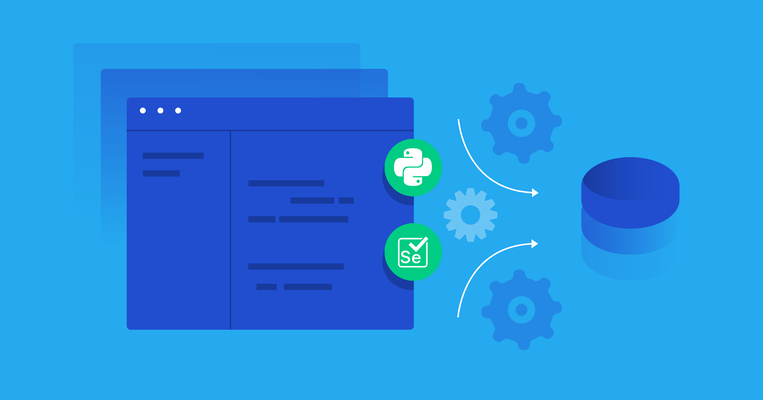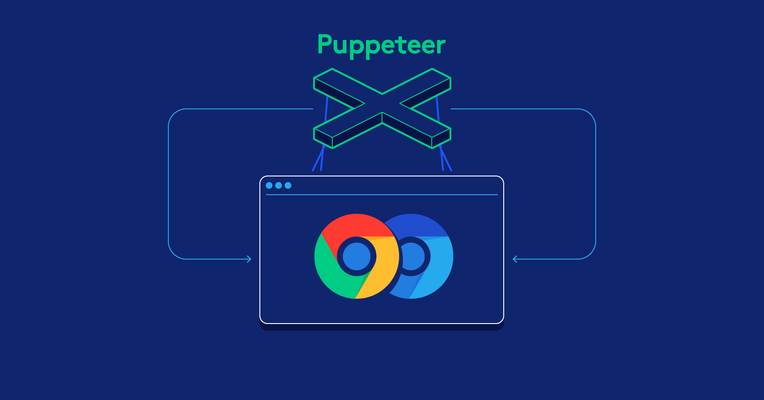
Hire Web Scrapers
Hire the Top 3% of Freelance Web Scrapers
Hire web scrapers, experts, specialists, engineers, and consultants on demand. Top companies and startups choose web scrapers from Toptal for data extraction, web crawling, parsing techniques, automation scripts, and more.
No-Risk Trial, Pay Only If Satisfied.
Hire Freelance Web Scrapers
Filip Boltuzic
Filip is a machine learning engineer with several years of professional experience. He's worked on large-scale problems at Amazon Web Services as a software developer and built natural language processing models as a research associate at the University of Zagreb. Filip's main interests are machine learning and natural language processing, with an emphasis on building text classification models.
Show MoreLukasz Jaworowski
Lukasz is a seasoned freelance Python developer and web scraping expert with a proven track record as a tech lead. He's successfully guided startups and managed corporate projects, turning complex challenges into scalable solutions. Lukasz's expertise spans Python, Go, PySpark, AWS, and modern DevOps tools, making him a reliable partner for innovative data-driven projects.
Show MoreArtur Marinho Gaspar
Artur is an expert Python programmer with seven years of experience. He specializes in web scraping and back-end web development. He has built multiple web scraping solutions, including the use of multiple browser engines to handle advanced JavaScript where one project averaged over five million requests per day across 30 different regional versions of a website. Artur's domain expertise includes eCommerce and real estate.
Show MoreAnderson Luiz Ferrari
Anderson is a software engineer who's strongly committed to delivering the best solution for the problem. In his more than 20 years in the IT industry, he's worked in projects from custom web development, collaboration portals, e-learning platforms, ERP, CMS, project management tools, mobile apps, reporting, business intelligence platforms up to IoT projects. Anderson has an MBA in project management and holds a PMP and MCSD .NET certification.
Show MoreMikhail Koviazin
Mikhail is a dedicated web expert specializing in web scraping and automation, with robust skills in both front-end (React) and back-end (Node.js) development. Known for a client-centered approach, he focuses on understanding specific needs and crafting tailored, efficient solutions. With a keen eye for detail and a commitment to excellence, Mikhail ensures every project is handled with precision and care, delivering standout digital experiences.
Show MoreJhony Chu
Jhony is a data analytics expert with 8+ years of experience leading and implementing end-to-end analytics projects, from data project planning and definition to data extraction, ingestion, cleaning, transformation, and data visualization on cloud platforms.
Show MoreLeah Sapan
Leah is a product-minded software engineer with over 15 years of professional software development experience. She has an extensive background in tech lead and architect roles with various clients spanning healthcare, fintech, eCommerce, and more. Leah takes pride in building products that delight users and exceed her client's expectations.
Show MoreJacob Shtokolov
Jacob is a professional web developer with more than 10 years of experience. Generally, he uses PHP, Python, and JavaScript to build complex web applications, but he is also versed in low-level languages for special cases. Jacob is particularly good at web scraping with Python.
Show MoreNolan McCafferty
Nolan has worked on everything from back-end web development, front-end web development, mobile development, and machine learning (ML). After graduating, he got a job as an automation engineer at Ford, where he made a significant impact by delivering an essential proof of concept (POC) for management. Now Nolan would like to take on new challenges and projects!
Show MoreNichita Uțiu
Nichita is a Python developer with experience in the field of machine learning research and an interest in bioinformatics. For deep learning, he prefers PyTorch. Nichita can handle web scraping and data cleanup projects and is comfortable with Linux. Nichita also has back-end development experience with Django, along with possessing good technical communication skills. He's also interested in applying data science to life science problems.
Show MoreDragos Dima
Dragos is a passionate machine learning engineer with five years of experience in artificial intelligence. He is well-grounded in natural language processing, Python, and SQL. Dragos has an excellent knowledge of deep learning frameworks such as TensorFlow and PyTorch.
Show MoreDiscover More Web Scrapers in the Toptal Network
Start HiringA Hiring Guide
Guide to Hiring a Great Web Scraper
Web scraping developers are vital for making the most of the vast amounts of online data that can inform—and even revolutionize—how an organization operates. This guide explores the key traits that set exceptional web scraping developers apart, provides tips on identifying the ideal candidate for your needs, and highlights crucial interview questions to ask during the hiring process.
Read Hiring Guide... allows corporations to quickly assemble teams that have the right skills for specific projects.

Despite accelerating demand for coders, Toptal prides itself on almost Ivy League-level vetting.









How to Hire Web Scraping Experts Through Toptal
Talk to One of Our Client Advisors
Work With Hand-selected Talent
The Right Fit, Guaranteed
EXCEPTIONAL TALENT
How We Source the Top 3% of Web Scrapers
Our name “Toptal” comes from Top Talent—meaning we constantly strive to find and work with the best from around the world. Our rigorous screening process identifies experts in their domains who have passion and drive.
Of the thousands of applications Toptal sees each month, typically fewer than 3% are accepted.
Capabilities of Web-scraping Developers
Toptal’s web-scraping developers extract valuable data from websites, using advanced tools like Beautiful Soup, Scrapy, and Selenium to collect, clean, and manage large datasets, making sure to follow legal standards and site restrictions.
Scraping Data From Dynamic Websites
Data Cleaning and Transformation
Large-scale Data Extraction
Real-time Data Scraping and Monitoring
E-commerce Price and Product Monitoring
Social Media Data Extraction
Lead Generation
Bypassing Anti-scraping Measures
Automated Change Detection and Alerts
Integration With Existing Systems
FAQs
How much does it cost to hire a web scraper?
The cost associated with hiring a web scraper depends on various factors, including preferred talent location, complexity and size of the project you’re hiring for, seniority, engagement commitment (hourly, part-time, or full-time), and more. In the US, for example, Glassdoor’s reported average total annual pay for web scrapers is $150,000 as of December 2024. With Toptal, you can speak with an expert talent matcher who will help you understand the cost of talent with the right skills and seniority level for your needs. To get started, schedule a call with us — it’s free, and there’s no obligation to hire with Toptal.
How quickly can you hire with Toptal?
Typically, you can hire web scrapers with Toptal in about 48 hours. For larger teams of talent or Managed Delivery, timelines may vary. Our talent matchers are highly skilled in the same fields they’re matching in—they’re not recruiters or HR reps. They’ll work with you to understand your goals, technical needs, and team dynamics, and match you with ideal candidates from our vetted global talent network.
Once you select your web scraping engineer, you’ll have a no-risk trial period to ensure they’re the perfect fit. Our matching process has a 98% trial-to-hire rate, so you can rest assured that you’re getting the best fit every time.
How do I hire web scrapers?
To hire the right web scraping consultant, it’s important to evaluate a candidate’s experience, technical skills, and communication skills. You’ll also want to consider the fit with your particular industry, company, and project. Toptal’s rigorous screening process ensures that every member of our network has excellent experience and skills, and our team will match you with the perfect web scrapers for your project.
How are Toptal web scraping experts different?
At Toptal, we thoroughly screen our web scrapers to ensure we only match you with the highest caliber of talent. Of the more than 200,000 people who apply to join the Toptal network each year, fewer than 3% make the cut.
In addition to screening for industry-leading expertise, we also assess candidates’ language and interpersonal skills to ensure that you have a smooth working relationship.
When you hire web scraping specialists with Toptal, you’ll always work with world-class, custom-matched web scrapers ready to help you achieve your goals.
Can you hire web scraping specialists on an hourly basis or for project-based tasks?
You can hire web scraping engineers on an hourly, part-time, or full-time basis. Toptal can also manage the entire project from end-to-end with our Managed Delivery offering. Whether you hire a web scraper for a full- or part-time position, you’ll have the control and flexibility to scale your team up or down as your needs evolve. Our web scrapers can fully integrate into your existing team for a seamless working experience.
What is the no-risk trial period for Toptal web scraping engineers?
We make sure that each engagement between you and your web scraper begins with a trial period of up to two weeks. This means that you have time to confirm the engagement will be successful. If you’re completely satisfied with the results, we’ll bill you for the time and continue the engagement for as long as you’d like. If you’re not completely satisfied, you won’t be billed. From there, we can either part ways, or we can provide you with another web scraper who may be a better fit and with whom we will begin a second, no-risk trial.
Explore Related Toptal Services
Looking for an end-to-end business solution? Browse Toptal's portfolio of services.
How to Hire Web Scraping Developers
Demand for Web Scraping Developers Continues to Expand
The demand for web scraping specialists is rapidly expanding due to the increasing reliance on data-driven decision-making across industries. The global web scraping software market is expected to increase from $814 million in 2025 to $2.2 billion by 2033, highlighting the rising need for businesses to extract vast amounts of data from the web to gain competitive insights, monitor market trends, and enhance customer experiences. Web scraping enables companies to automate data collection from diverse sources, providing real-time, actionable business intelligence. This skill is particularly crucial for the e-commerce, finance, and marketing sectors, where timely and accurate data can significantly impact strategic decision-making.
Nonetheless, recruiters often struggle to find the right developer due to the swiftly evolving complexity of web technologies and the increasing sophistication of anti-scraping measures implemented on many websites. Many potential candidates lack the advanced problem-solving skills required to navigate these challenges effectively. Furthermore, the surge in demand for data-driven insights across industries has intensified competition for top talent, making it harder to secure skilled developers with extensive experience. The need for candidates who have a good understanding of current data protection laws and ethical standards adds another layer of complexity. This convergence of technical, legal, and competitive factors can make the hiring process particularly daunting.
However, even if you are unfamiliar with the nuances of web scraping, there are a number of practical guidelines you can use to evaluate candidates’ technical expertise and suitability for the project you have in mind. In this guide, we’ll cover the attributes that differentiate quality web scraping developers from others, how to identify the right candidate for you, and some of the most important interview questions that you should be sure to ask during a candidate’s application process.
What Attributes Distinguish Quality Web Scraping Developers From Others?
Web scraping developers specialize in creating scripts and automation tools to extract large volumes of data from websites and transform this unstructured web data into formats suitable for analysis. These skilled professionals utilize various programming languages like Python, along with top web scraping tools, frameworks, and libraries, such as Selenium, Scrapy, and Beautiful Soup, to create sophisticated web crawler bots that systematically navigate the Internet, collecting data quickly and efficiently.
This specialized field requires a unique blend of skills and attributes to efficiently and ethically extract valuable data from websites:
Technical Proficiency
Expert candidates should have a strong command of programming languages commonly used for web scraping, particularly Python. Proficiency in JavaScript (and Node.js for back-end operations), Ruby, PHP, Java, or C# can also be beneficial, depending on specific project requirements and the complexity of the data scraping tasks. Knowledge of CSS selectors is essential for precisely targeting webpage elements, along with expertise in transforming unstructured web data into structured formats like CSV for analysis and further processing.
It’s also essential to have proven experience with web scraping tools, libraries, and frameworks. The most popular of these include Puppeteer and Cheerio, in addition to the aforementioned Selenium, Scrapy, and Beautiful Soup. A top-notch candidate should also possess expert skills in managing large datasets with SQL and NoSQL databases, integrating data pipelines, and ensuring data integrity.
In addition to core web scraping tools, developers with full-stack framework experience like Django can add significant value by building robust systems to manage and serve scraped data. When combined with cloud platforms like Microsoft Azure and Amazon Web Services, these frameworks enable scalable scraping operations through features like distributed crawling, automated IP rotation, and efficient data storage. For specialized use cases like WordPress site analysis, experienced developers can build comprehensive solutions that combine web scraping with data analysis capabilities—whether for monitoring content performance, conducting SEO audits, or analyzing competitor websites.
Experience With Web Protocols and Data Formats
A top-tier web scraper will have a strong understanding of web protocols, including HTTP and HTTPS, and be capable of handling various request methods. They should also be familiar with parsing HTML, XML, and JSON data formats, ensuring that the extracted data is clean, meaningful, and structured as necessary for further analysis through processes like data mining and data profiling. Knowledge of regular expressions is also a valuable asset that allows developers to locate and extract specific patterns of data from webpages.
Ability to Handle Dynamic Content
A web scraping expert should be proficient in handling dynamic content as well as JavaScript-heavy websites and web applications. This is where it becomes especially crucial to use headless browsers like Puppeteer or Selenium to interact with webpages that require user actions on the front end (e.g., clicking buttons, filling out forms, and navigating through multilayered site structures) and to do so automatically.
Problem-solving Skills
Web scraping often involves data deduplication and overcoming obstacles like CAPTCHAs and IP bans. Ideal candidates will demonstrate strong problem-solving skills and should be able to implement advanced algorithms for fuzzy matching, and use sophisticated data structures like hash sets to accurately identify and remove duplicates. Additionally, they should be capable of implementing solutions like IP rotation, CAPTCHA-solving techniques, and robust error-handling mechanisms to avoid detection and blocking by target websites and ensure reliable data extraction.
Proficiency in Writing Optimized and Scalable Code
An accomplished software engineer in this area should be able to optimize their scripts for efficiency and scalability. This includes writing clean, maintainable code, implementing retry mechanisms, and ensuring the data scraping process can handle large volumes of information without compromising performance.
Attention to Ethical Guidelines and Legal Constraints
Developers working with web scraping tools must ensure that their processes comply with ethical and legal standards. This includes respecting website policies, handling data with care, and understanding terms of service. Businesses—including startups—should verify that candidates adhere to best practices, ensuring the work of their data scrapers avoids legal pitfalls. They should be well versed in respecting robots.txt files, adhering to website terms of service, and ensuring compliance with data privacy laws such as the EU’s General Data Protection Regulation and the California Consumer Privacy Act to foster responsible data usage.
How Can You Identify the Ideal Web Scraping Developer for You?
To identify the perfect web scraping specialist for you, it’s crucial to first understand your project’s key requirements and the makeup of your existing team. Is it a new pilot project, or are you looking to hire web scraping freelancers to contribute to an existing short-term project? Will the candidate join an existing team, or do you need a developer with extensive previous experience to spearhead the operations of a new team? What is your current team’s skill set, and where are the gaps?
Further, identifying the perfect developer for you depends on your specific use case and business goals. For example, e-commerce businesses might hire freelance developers to monitor competitors’ pricing, product availability, and customer reviews. By continuously scraping this data, e-commerce businesses can dynamically adjust their pricing strategies and inventory management to stay competitive. Moreover, market research firms might hire web scraping developers to collect data from various social media platforms, forums, and news sites to perform sentiment analysis on users’ posts, pinpoint emerging trends, and streamline the lead generation process. This allows the firms to provide much greater value to their clients by informing their approach to get—or stay—ahead of the game.
Whether you’re a recruiter hiring for large enterprises or fast-moving startups, identifying the right developer means aligning technical expertise with your project’s scale and complexity. For smaller tasks like basic data entry or static scraping, a junior data scraper may suffice. For full-scale automation projects involving web crawling and dynamic content extraction, consider hiring a full-time senior developer to ensure robust performance and reliable delivery.
Distinguishing Between Junior, Mid-level, and Senior Web Scraping Developers
When defining the job requirements for the position you’re seeking to fill, having a basic understanding of the differences between junior, mid-level, and senior candidates is essential for aligning their skills with your web scraping project’s goals. Here’s a breakdown of what differentiates each experience level:
Junior web scraping developers typically have foundational knowledge in web scraping, often focusing on basic tasks like extracting data from static websites. This type of candidate may have completed a few small projects or internships but may lack extensive hands-on experience. Their understanding of web protocols and dynamic content handling is still developing, and this learning curve can slow down a timeline for delivery if they are tasked with using advanced data scraping techniques or tools. Junior developers may struggle with complex problems like handling CAPTCHAs or IP bans and often rely on mentorship and oversight from more experienced team members. Additionally, these programmers may not have a strong understanding of the ethical and legal considerations involved in web scraping, increasing the risk of noncompliance.
However, a junior developer can be sufficient for straightforward web scraping tasks that involve only static websites or basic data extraction. These candidates are also well positioned to supplement a skilled team and handle routine tasks, allowing senior team members to focus on more complicated challenges.
Mid-level web scraping developers possess a well-rounded set of skills, combining a solid technical foundation with proven experience, including working with CSS selectors for precise data extraction, handling APIs, and converting data into structured formats such as CSV files. They are proficient in not only their role as Python developers but also languages like JavaScript or Ruby. They are comfortable using advanced tools and frameworks for larger projects and more demanding scraping tasks. Mid-level web scraping developers have several years of relevant experience and a portfolio of completed projects demonstrating their ability to handle dynamic content and interact with APIs to bypass anti-scraping measures. Mid-level developers can overcome intermediate challenges, such as navigating multilayered site structures and implementing basic error-handling mechanisms. They are also capable of optimizing scripts for better performance.
These candidates are best suited to medium-complexity scraping projects, such as scraping dynamic websites or integrating multiple data sources. They can work independently to resolve moderately complex issues, reducing the need for constant supervision.
Senior web scraping developers are ideal for highly complex, large-scale projects requiring advanced technical skills and strategic oversight. These candidates are experts in multiple programming languages and have extensive experience with advanced web scraping techniques. These talented developers are adept at tackling complex challenges, such as IP rotation, CAPTCHA solving, and overcoming sophisticated anti-scraping measures. They are also exceptionally skilled at optimizing scripts for performance and scalability, ensuring efficient data extraction for projects of any scope. Their proven expertise in data deduplication, error handling, and implementing retry mechanisms ensures that scraping operations are robust, reliable, and perform all necessary functions. Furthermore, senior web scraping developers typically have in-depth knowledge of database design, optimization, and scalability issues. They are also proficient in integrating distributed data processing frameworks, whereas junior and mid-level developers may primarily focus on basic CRUD operations and simpler database interactions.
Senior developers often have a proven track record of success in leading teams, managing projects, and mentoring less experienced developers. They can provide strategic direction and ensure the team adheres to best practices while rendering their web scraping services. Programmers of this caliber are also best positioned to understand legal and ethical considerations and ensure compliance with data privacy laws and website terms of service. For projects where ethical and legal compliance is paramount, a senior developer’s in-depth knowledge in these areas is essential to protecting the business from potential legal issues.
Notwithstanding, a senior web scraping developer’s considerable expertise and many years of experience in software development may be underutilized on simpler projects, making them less optimal for straightforward tasks that junior or mid-level developers could handle. Senior developers are often in high demand, which can make the hiring process more competitive and time-consuming. Nevertheless, depending on your job requirements, pursuing this type of candidate can be extremely worthwhile.
How to Write a Web Scraping Developer Job Description for Your Project
Beyond the key requirements and technical proficiencies mentioned above, be sure to highlight soft skills in your job description and throughout the application process, such as strong attention to detail, effective communication, and project management.
A desirable candidate will have a meticulous eye for detail to ensure data accuracy and integrity, as even small errors can lead to significant issues in data analysis. Strong communication skills (both written and verbal) are also vital for effectively collaborating with team members, explaining complicated technical concepts to nontechnical stakeholders, and documenting processes and findings.
You’ll want to be sure to hire a qualified candidate who excels at managing multiple tasks and projects simultaneously to ensure the timely delivery of materials that maintain high standards of quality. Consider all of the above-listed soft skills when evaluating whether a web scraping developer can truly apply whatever ideal skills they possess in a collaborative context.
Finally, including well-structured FAQs in your job posting can streamline the hiring process, addressing common concerns and clarifying expectations around technical skills, ethical practices, and project goals.
What Are the Most Important Web Scraping Developer Interview Questions?
Interviewing web scraping specialists requires a targeted approach to assess both technical skills and problem-solving capabilities. The right questions will help you uncover how candidates approach challenges like handling dynamic content, optimizing performance, and navigating anti-scraping measures. This section provides key interview questions designed to evaluate a developer’s expertise, ensuring they’re the right fit for your project’s needs.
How do you handle errors and exceptions in headless browser scripts to ensure robust and reliable data scraping?
A desirable response could discuss using try/except blocks to handle specific exceptions, such as TimeoutException or NoSuchElementException in Selenium, and how the candidate implements retries. A candidate with ideal skills and solid experience likely uses comprehensive logging using modules and libraries like logging in Python or winston in Node.js, for example, to capture error details and stack traces for debugging. Web scraping experts also utilize browser debugging tools like Chrome DevTools and Puppeteer’s built-in debugging options to diagnose and resolve issues efficiently.
The candidate’s answer to this question will help you gauge their familiarity with essential tools and ensure they can create resilient web scraping scripts that handle unexpected issues gracefully and minimize downtime and data loss.
What strategies do you use to circumvent anti-scraping measures ethically and avoid getting blocked while scraping websites?
A suitable response will involve ensuring compliance with websites’ robots.txt files and terms of service. Skilled candidates often handle CAPTCHAs by using CAPTCHA-solving services and integrating third-party APIs like Anti-Captcha or 2Captcha, or employing artificial intelligence or machine learning models for automated solving. Experienced developers use techniques like rotating IP addresses with proxy services to distribute requests and avoid rate limiting. Implementing randomized delays between requests and mimicking human-like interactions can also help avoid detection.
This question will help you establish that the candidate has a solid understanding of how to maintain the reliability and continuity of data scraping operations, minimizing disruptions and maximizing the efficiency of the data collection process.
How do you manage and store the data you scrape, especially when it comes to large datasets?
Adept web scraping developers use scalable databases such as PostgreSQL for structured data and MongoDB for unstructured data. Candidates with sufficient web scraping experience should ensure data integrity through validation and normalization processes during ingestion. For efficient handling of large volumes, a developer with ideal skills should discuss how they leverage cloud storage solutions like Amazon’s AWS S3 and use data processing frameworks like Apache Spark for distributed computing. Regular backups and data versioning are also key strategies to ensure data is secure and recoverable.
By asking this question during the hiring process, you can verify that candidates are talented developers with the in-depth knowledge required to efficiently store and manage large quantities of scraped data, facilitating easy access and analysis and improving data management processes overall.
Why Do Companies Hire Web Scraping Developers?
Web scraping developers are essential for businesses looking to harness the power of big data to stay ahead in today’s data-driven economy. By leveraging the expertise of high-quality web scraping developers to efficiently gather vast amounts of web data and transform it into structured formats suitable for analysis, your organization can gain a competitive edge, no matter the industry. Whether you hire a web scraping expert to deliver market intelligence or consumer insights through competitor analysis or sentiment analysis, assist with risk management and compliance monitoring, or drive innovation in product development and customer engagement, you’ll obtain the critical information and actionable insights you need to make informed decisions, optimize your efforts, and, ultimately, drive growth.
Featured Toptal Web Scraping Publications
Top Web Scrapers Are in High Demand.

























